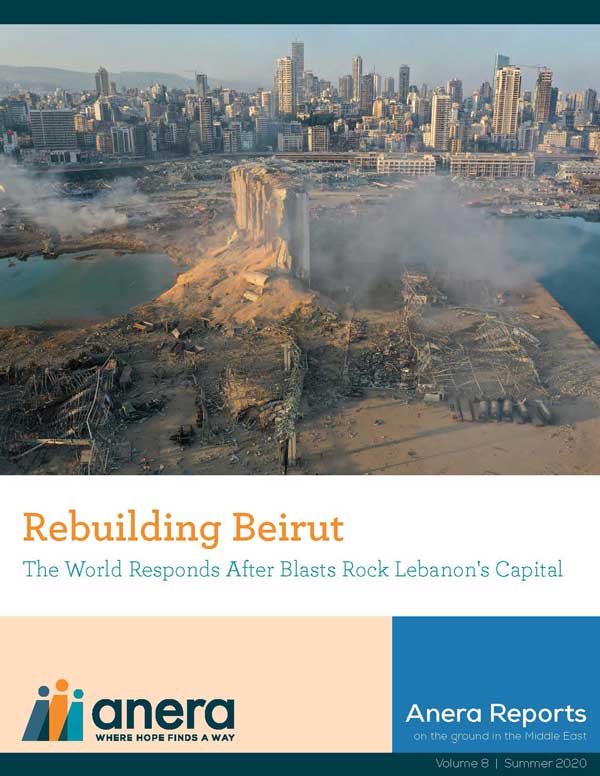Rebuilding Beirut
Posted in: News
On August 4, 2020 at around 6 PM local time, a pair of explosions rocked Beirut, Lebanon’s capital. The second and much more powerful blast is believed to have originated from a warehouse storing approximately 2,750 tons of ammonium nitrate — a highly explosive chemical often used as fertilizer — which had been at the port since 2014. According to reports, a fire at a nearby warehouse ignited the large cache of ammonium nitrate.
Lebanese and international officials are still investigating what caused the blast and why the explosive chemicals remained at the port for six years. In a city of 1.9 million, at least 300,000 people have been displaced from their homes. Initial reports estimate the cost of repairing damage to infrastructure in Beirut will likely be between $10 and $15 billion USD.
Lebanon is facing the worst humanitarian crisis of its history, with the convergence of the on-going COVID-19 pandemic, an economic collapse, and now this terrible, preventable explosion.


Read our new on-the-ground report
Rebuilding Beirut: The World Responds After Blasts Rock Lebanon’s Capital
OUR BLOG
Related
Part of a series on the impact of the war on all sectors of economic life within Gaza, Anera’s immediate response and plans for the future. Other posts cover housing, education, WASH, health and food production systems. Livelihood Recovery In Gaza, 57 years of occupation and…
InterAction and 50 Member CEOs, some of whom have organizations that work in Gaza, urge President Biden to take decisive and actionable steps to alleviate the humanitarian crisis in Gaza. Detailed within this letter are specific steps and commitments that…
